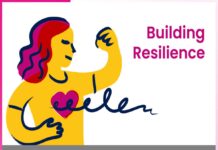Critical Thinking Skills
Critical thinking refers to the potential to think rationally and clearly, evaluating the logical link between the ideas and concepts. It has been a topic of debate since the times of Greek philosophers Socrates and Plato.And is still a topic of debate in present times, for instance, the potential to identify fake news. Critical thinking can be explained as the potential to engage in independent and reflective thinking.
Fundamentally, critical thinking needs you to use your potential to reason. It refers to being an active learner instead of a passive recipient of details and information. Critical thinkers highly question assumptions and ideas instead of merely accepting them as facts. They always try to determine whether the findings, ideas, and arguments represent the whole picture and are open to finding that they are not. These people recognize, evaluate and solve problems in a systematic way and not by instincts or intuitions.
An individual with critical thinking skills can understand the connection between the ideas, determine the relevance and value of ideas and arguments, recognize errors and inconsistencies in reasoning, approach problems systematically and consistently, and reflect on the reasoning of their beliefs, assumptions as well as the values.
Critical thinking enables us to reach the optimal solution in the situation which the thinker has a clue of. In simple language, it is a method of thinking about what is occupied by your mind presently so that you reach the optimal conclusion.

It is a fact that nobody can think critically all the time and sometimes we think in a very different emotional manner. For instance, anger highly affects our self-control, joy, or grief or when we feel bloody-minded. Whereas the better news is our critical thinking potential differs because of our present mindset, almost every time we can learn to enhance our critical thinking potential by developing some routine activities and executing them to all the ongoing current problems. After understanding the critical thinking theory, it takes persistence and patience to improvise your critical thinking skills.
It is very important to know the fact that critical thinking refers to deciding what you desire to achieve and then making a decision based on available possibilities. Once, the aim is clear, you must use it as the initials step or all future situations that would require thought and more decision making. Whenever required, tell tour friends, family, workmates regarding the intention to pursue the aim. Then, one should discipline himself to stay on track till changing situation mean you must revisit the beginning of the decision-making process.
There are certain things that play vital role in the simple decision making process. Everyone has a range of dislikes and likes, personal preferences, and learned behaviors developed all over life. These are hallmarks of being an individual. A huge contribution to make sure that we think critically is to stay aware regarding personal traits, biases, preferences and make allowance for them while considering the next possible steps, whether they are part of the rethinking caused by unforeseen or unexpected impediments or are at the pre-action consideration stage. The more we know ourselves, our weaknesses, and our strengths, the more productive our critical thinking will be.
The most crucial element of critical thinking is foresight. The decisions we take and execute do not prove to be disastrous if we get reasons to abandon them. Also, our decision-making can be highly successful and better if we reach an effective conclusion, we stop and evaluate the effect on the activities and people around us. The elements which require consideration can be different and numerous. In a lot of cases, considering a certain element from a varied perspective would reveal possible dangers in pursuing the decision. For example, shifting a business to a new location can increase potential output but it can also cause a loss in the number of skillful workers if the distance moved is very much. These problems arise because of incomplete and inefficient critical thinking.
In conclusion, critical thinking focuses on attaining optimal outcomes in all situations. For achieving this, one should include gathering and evaluating information from various possible resources. Critical thinking requires a clear and uncomfortable assessment of personal preferences, strengths, weaknesses, and their possible effect on the decision one may take. Critical thinking needs the development and usage of foresight as much as possible. Executing the decisions taken after critical thinking should take into consideration the possible results and ways of preventing negative results or at least reducing the impact. Critical thinking includes results reviewing and applications of the decision taken and executing the change wherever possible.












































